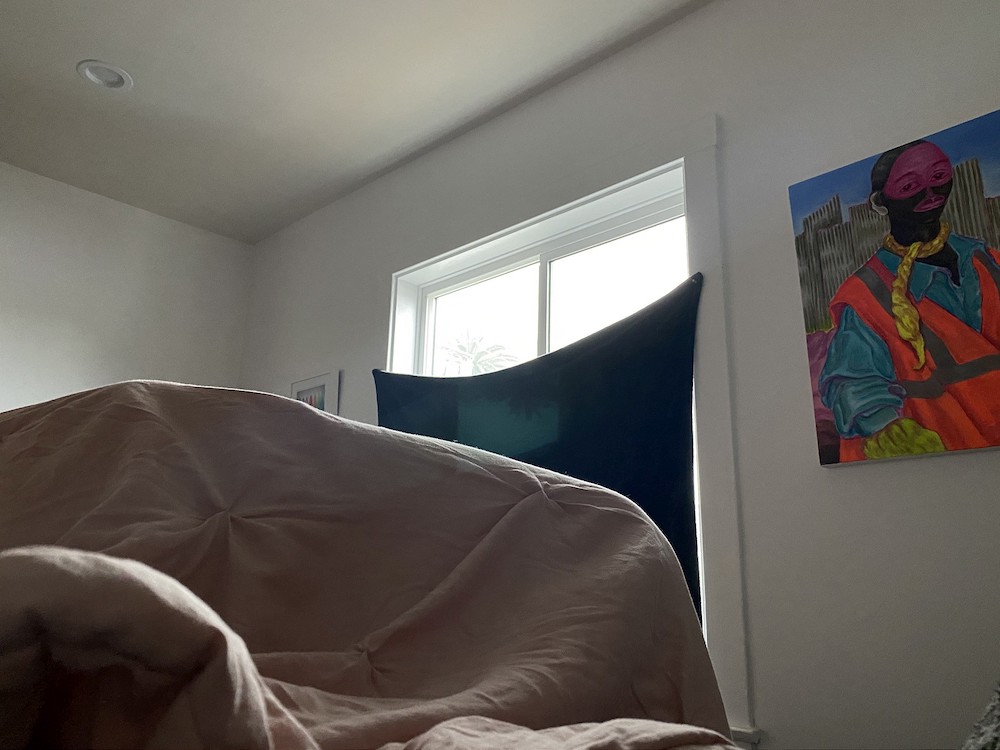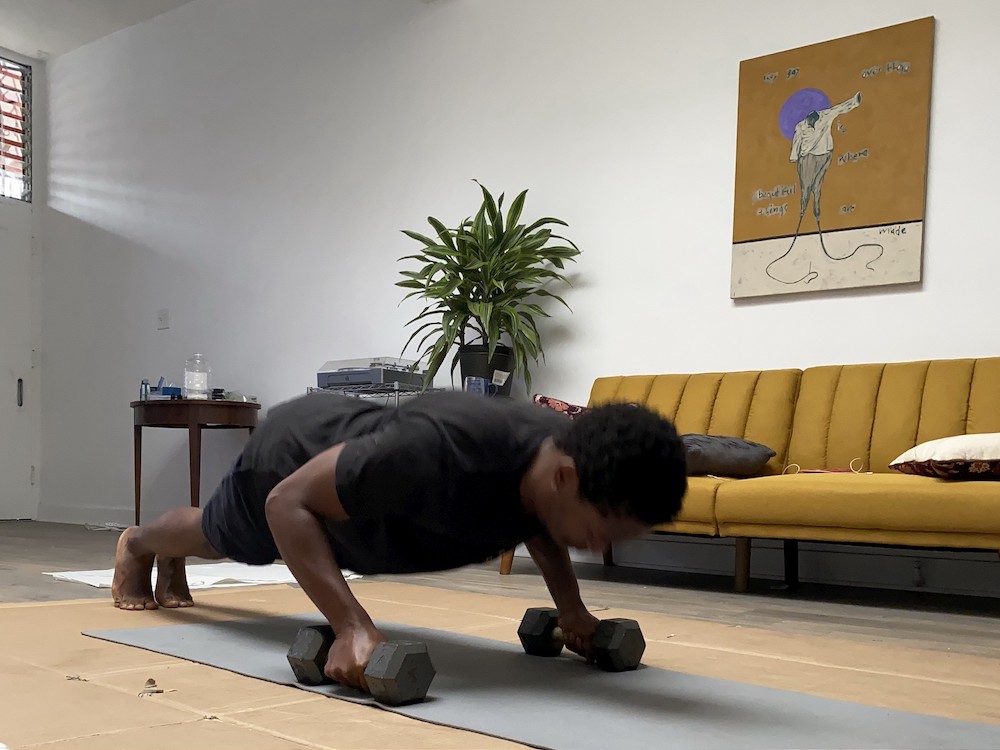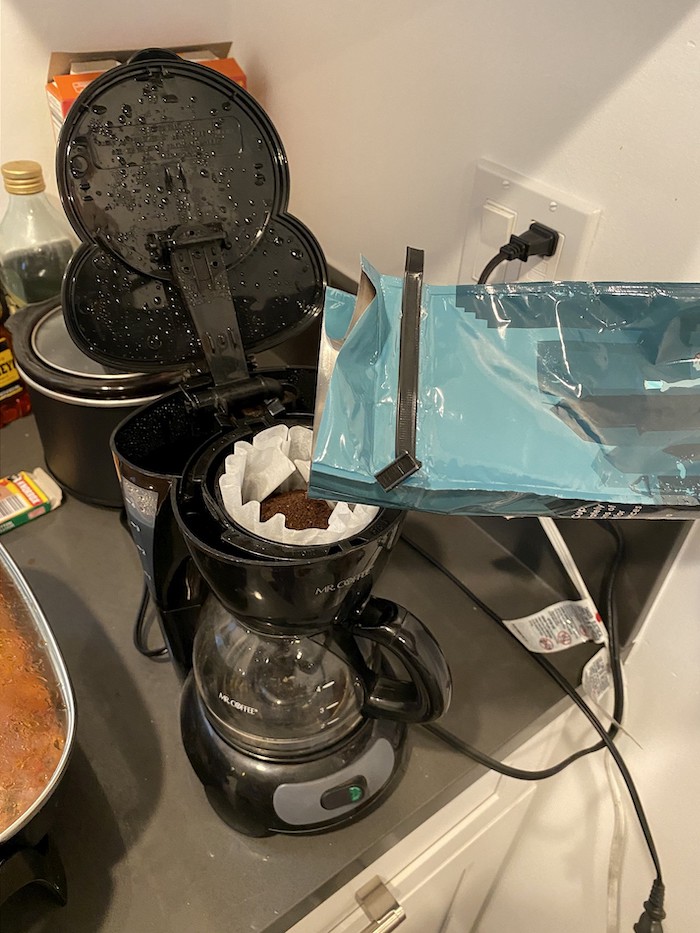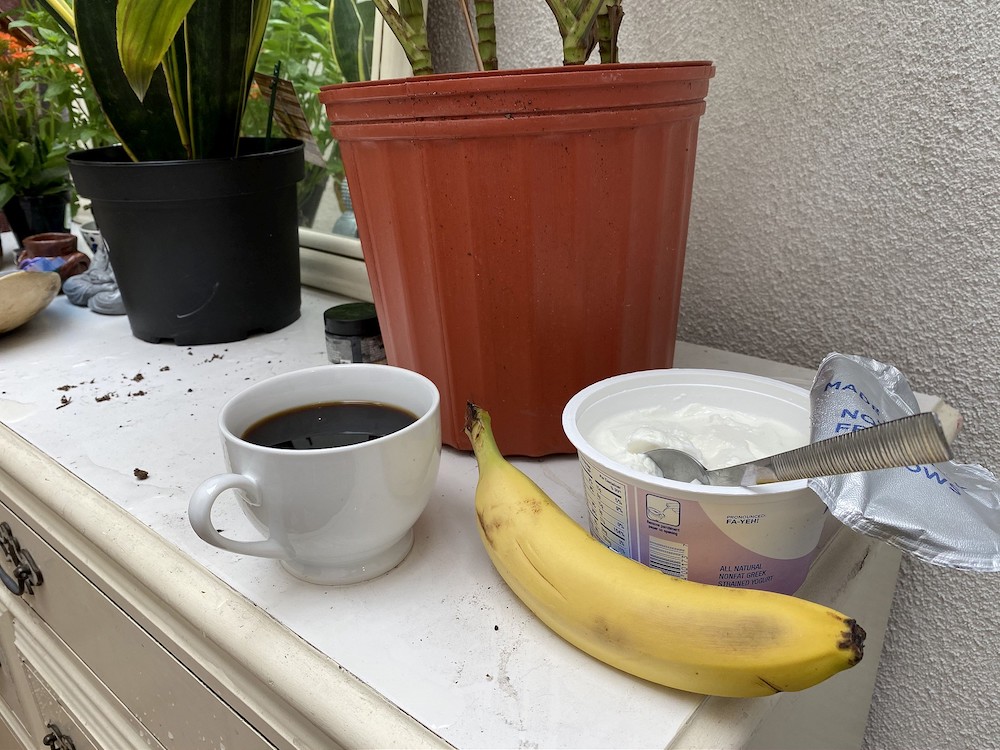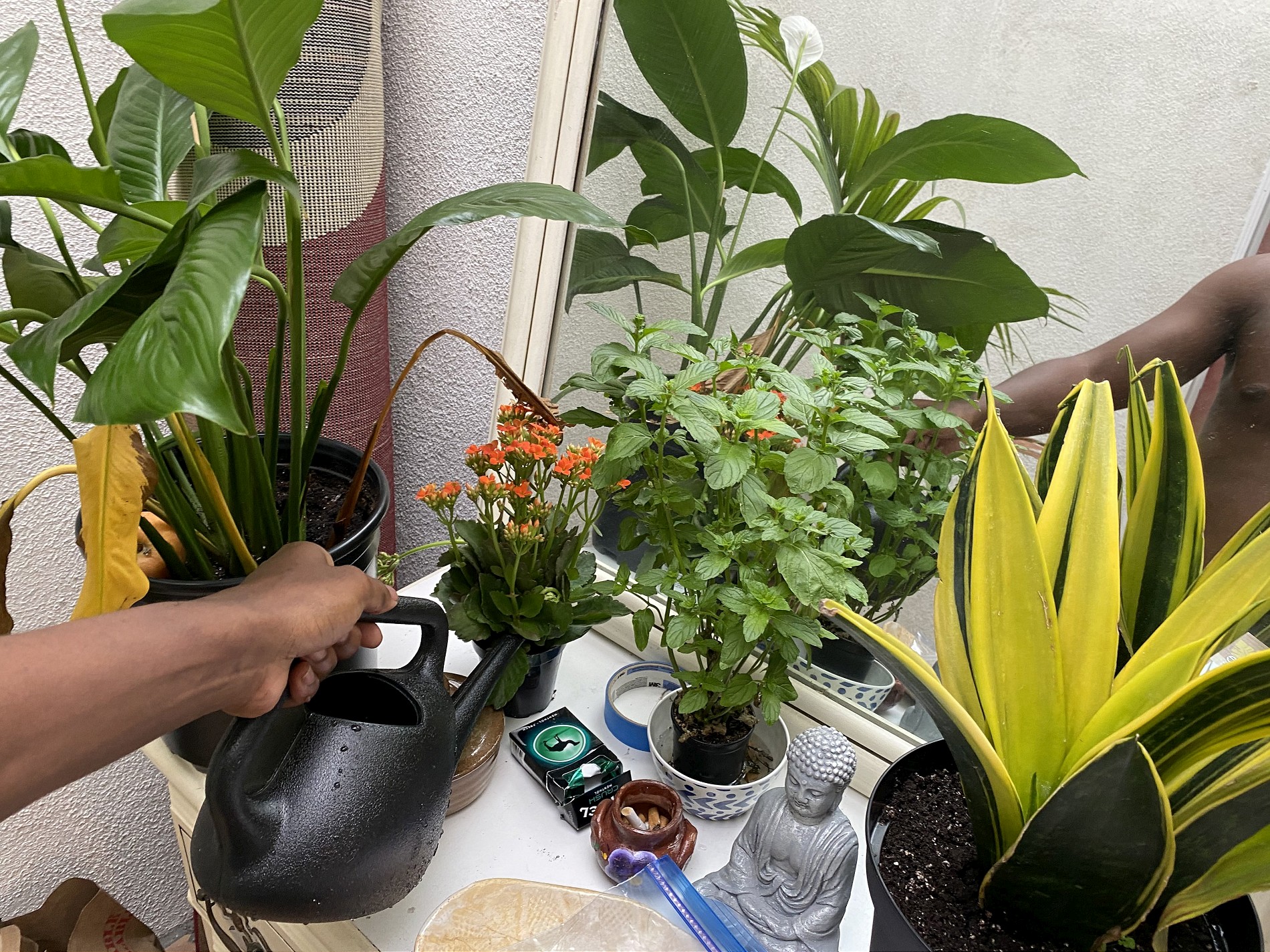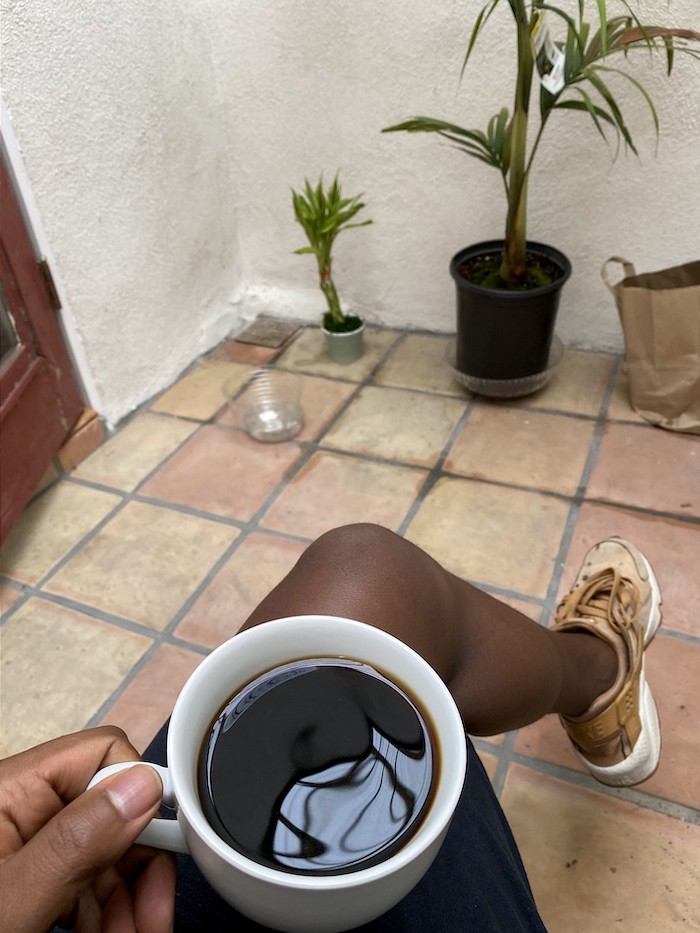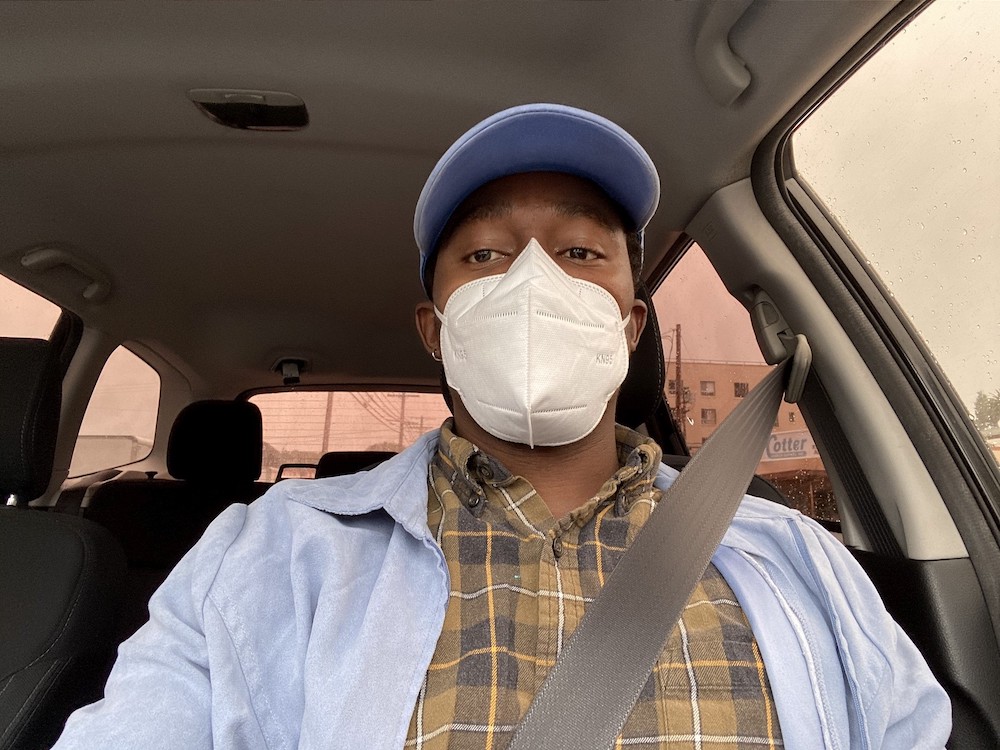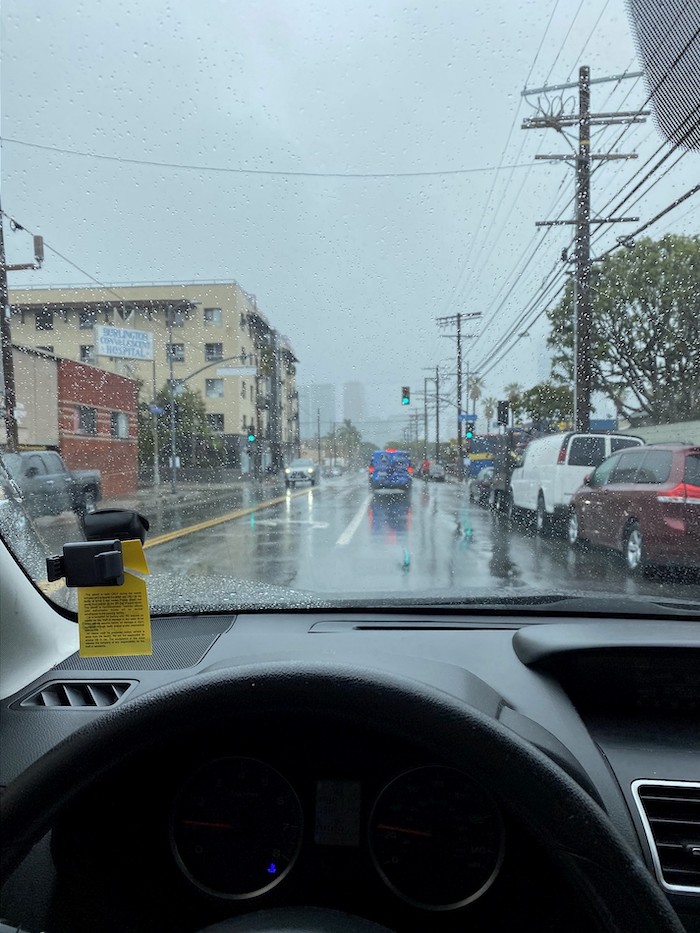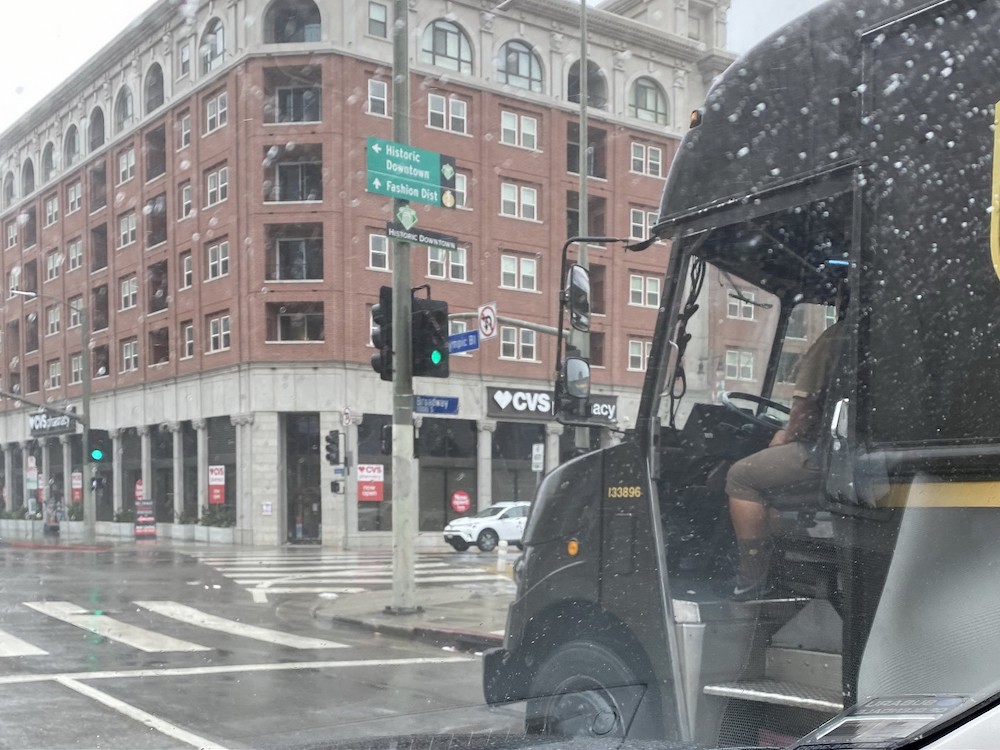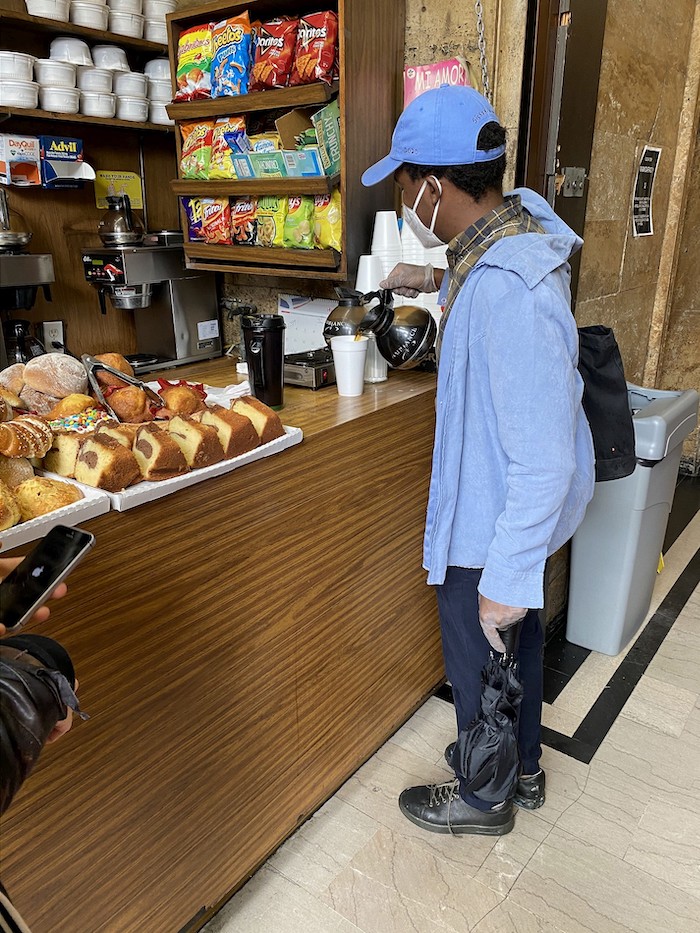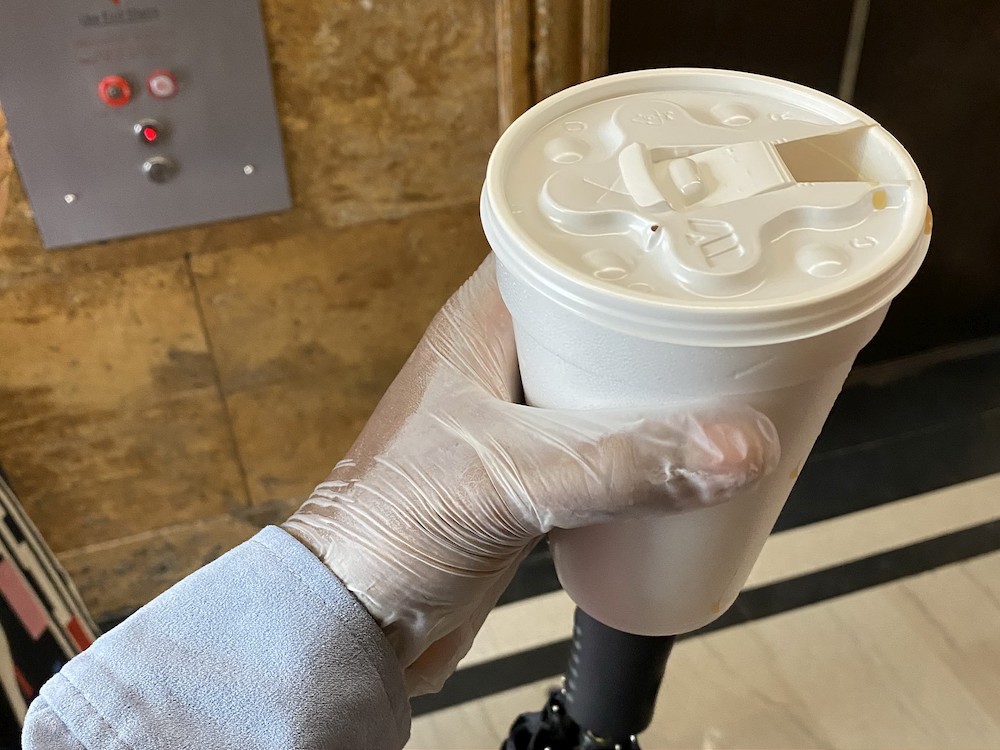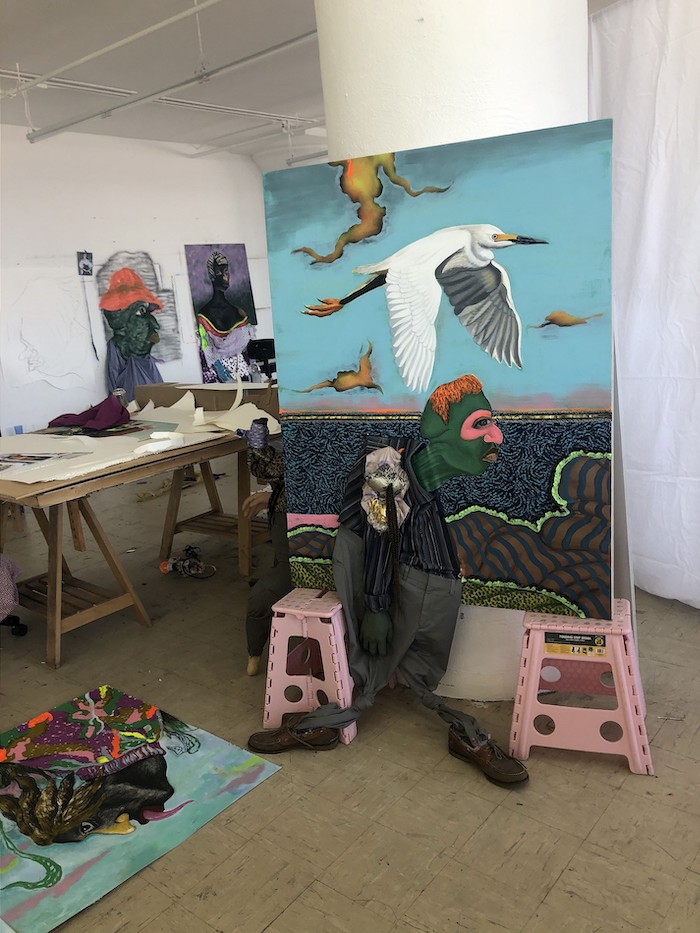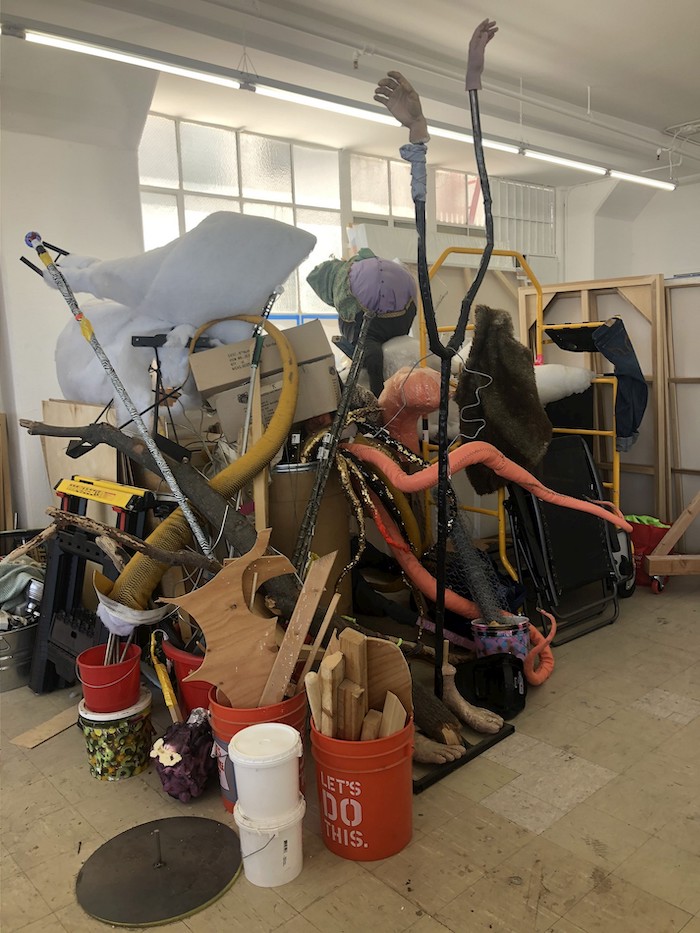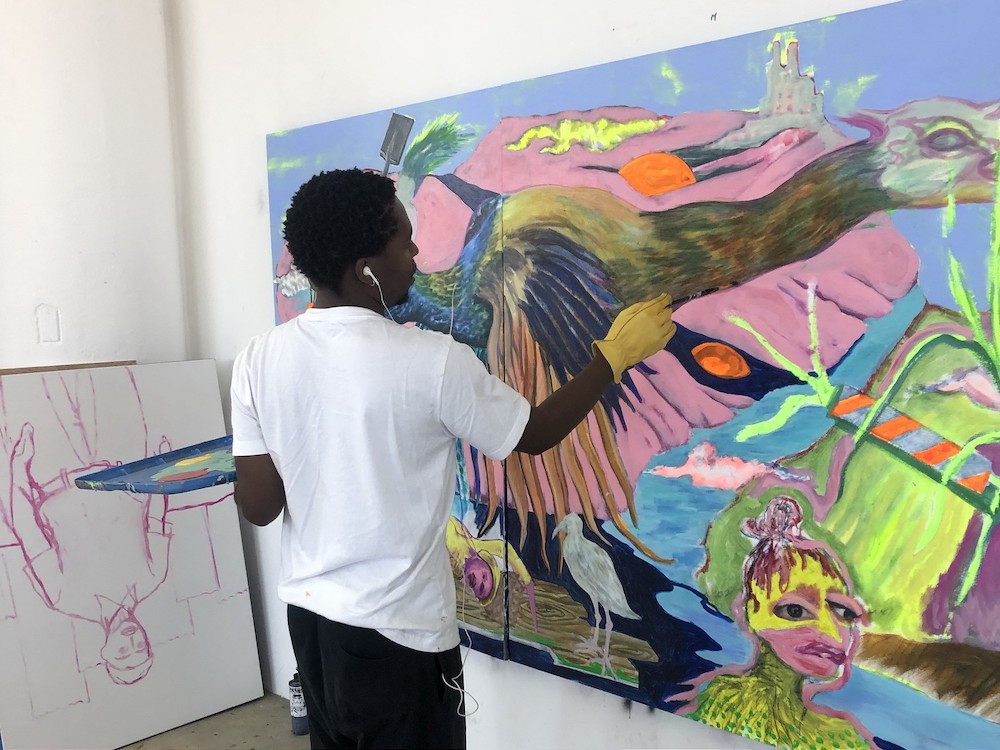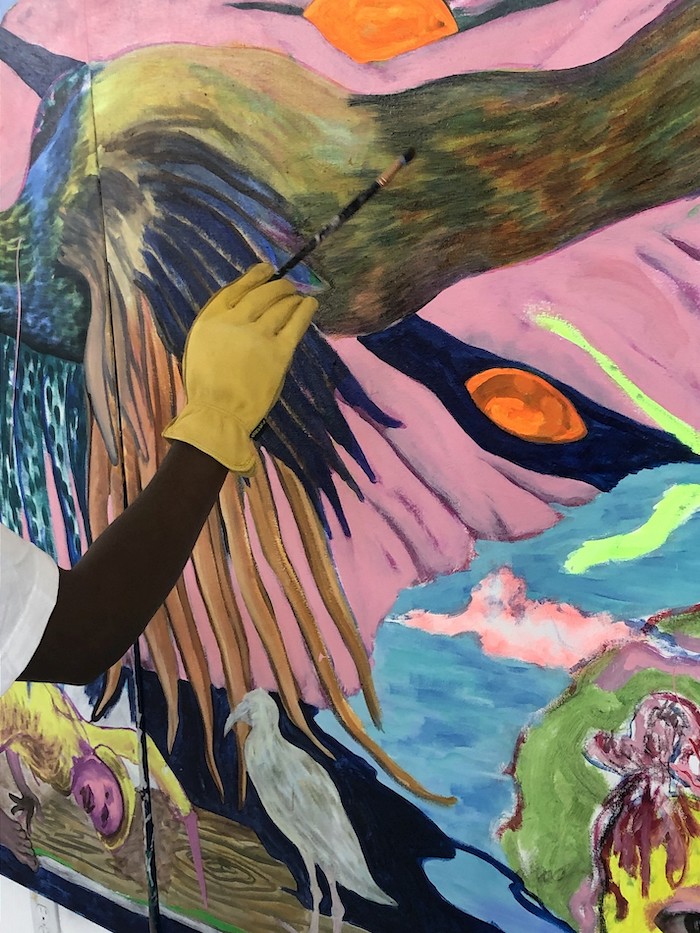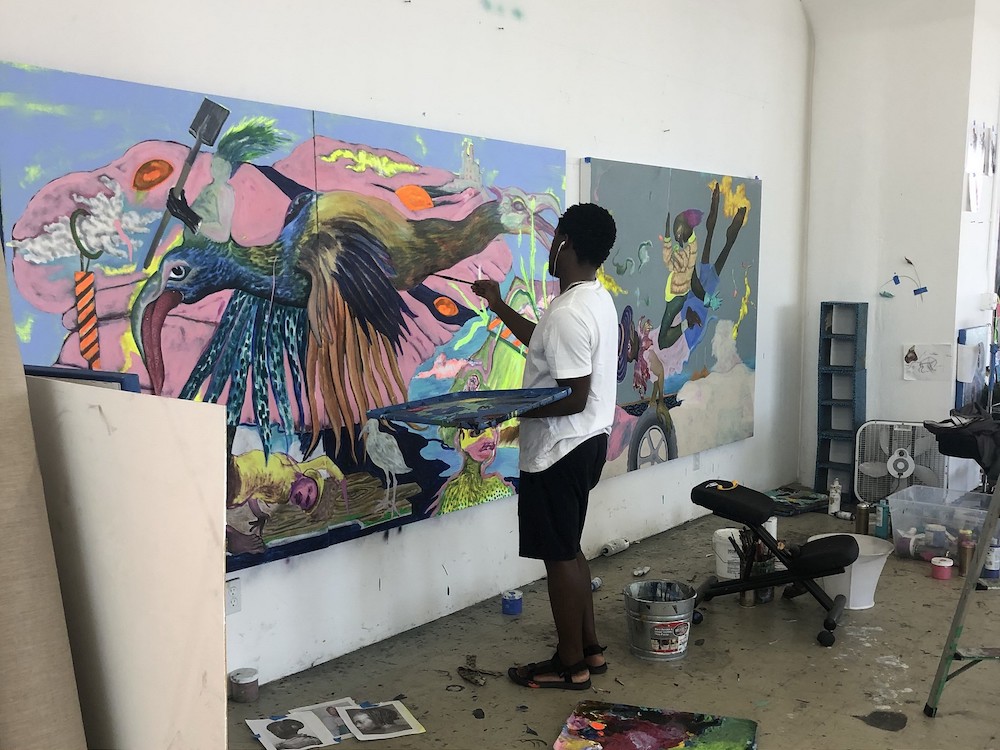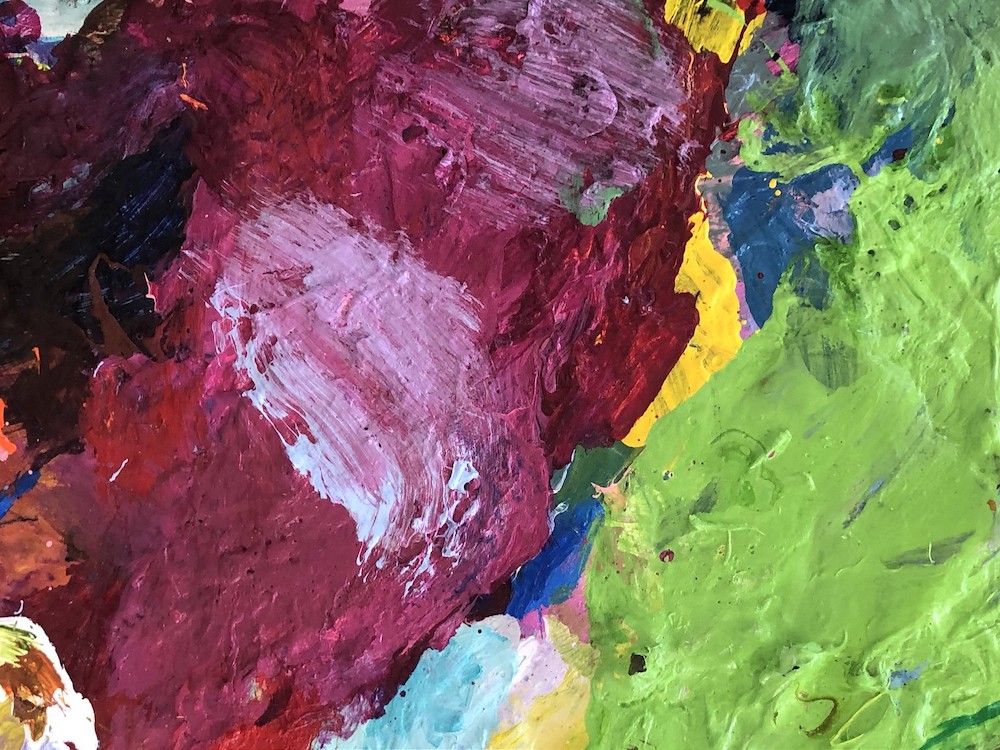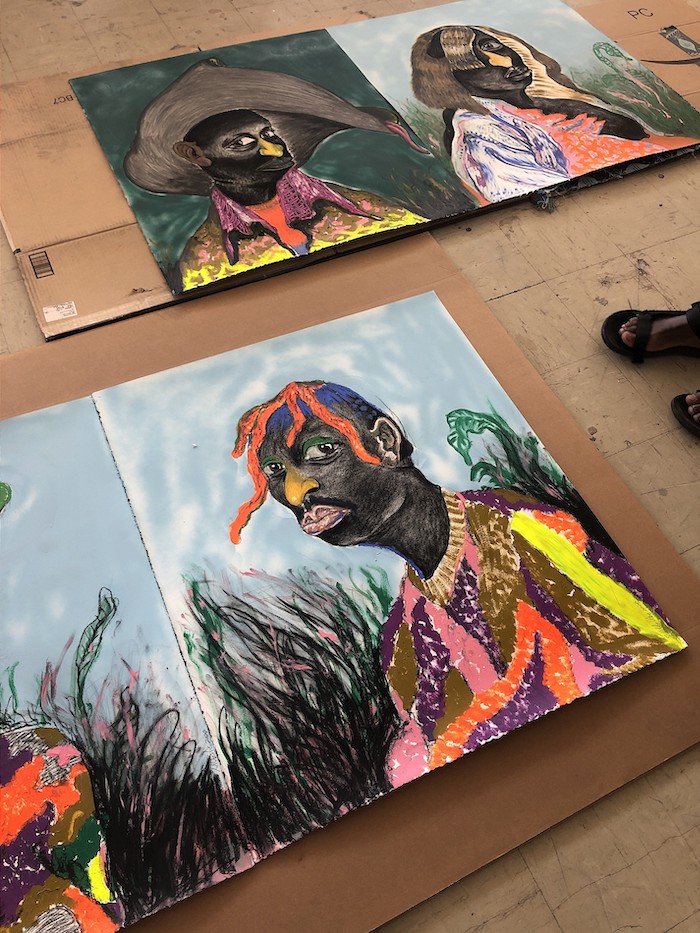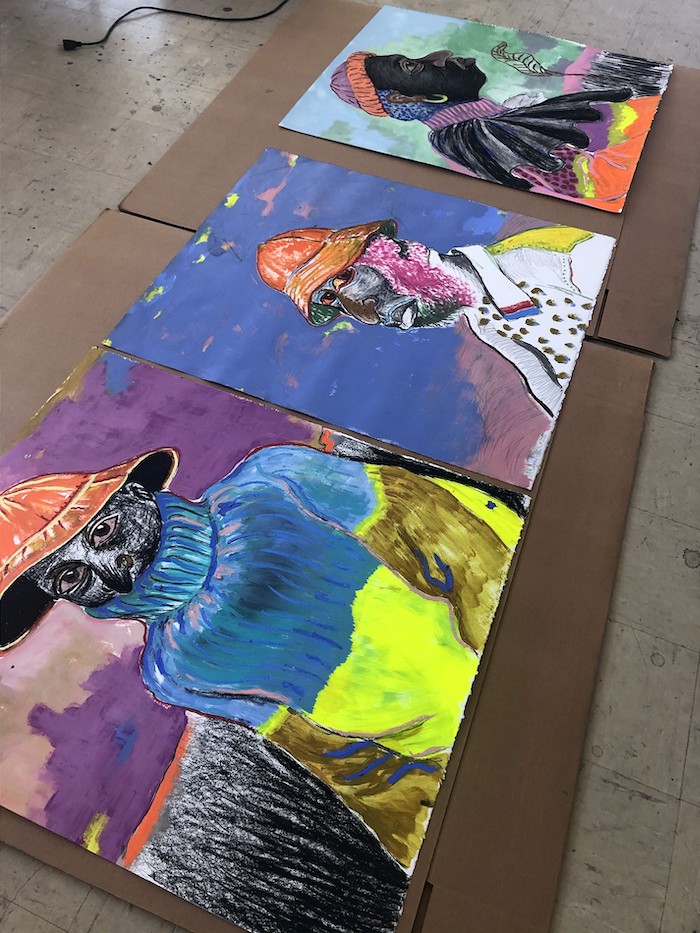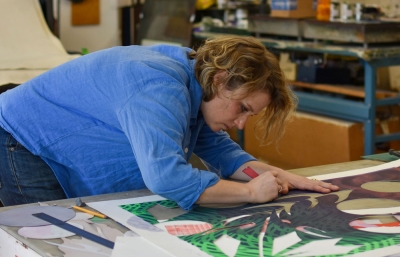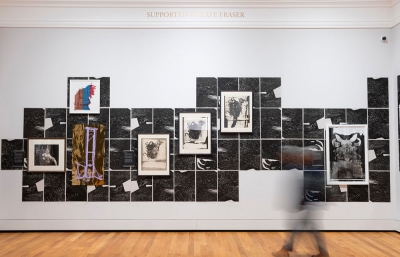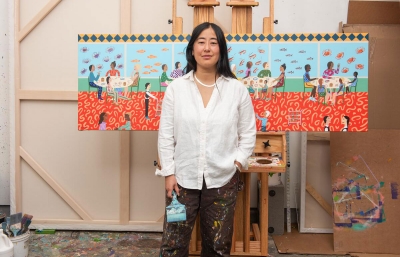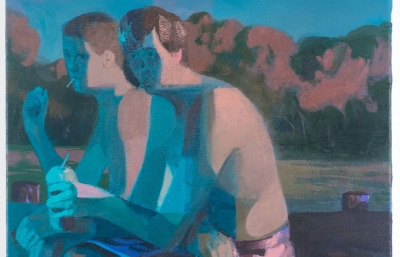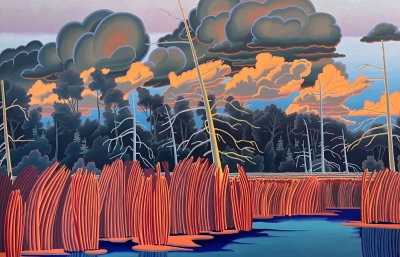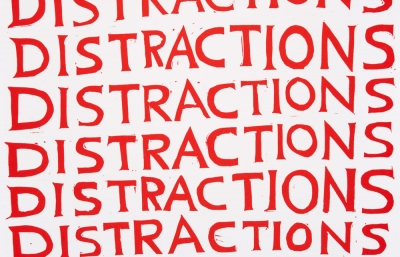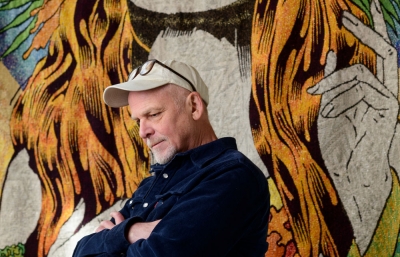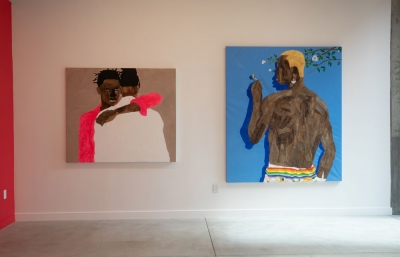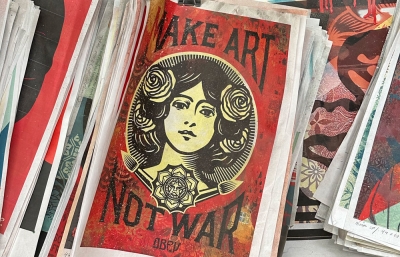"Everything has kind of flipped upside down," Simphiwe Ndzube wrote when we checked in for Art in Uncertain Times. "I’m learning to walk on my hands and feet, so to speak. I think that we all are." Mirroring the vibrant imagination that springs from his work, Ndzube expresses a poetic view of the situation. "I’m feeling a new connection with the body; I’m learning to actually feel it—the body, the heart, breathing, stillness."
We originally got in touch with Ndzube for his assessment of how the pandemic was influencing his personal life and workday routines, but the issue of racial inequality rose to the forefront of our thoughts. "Things have really escalated since the public uprisings around the police killings, really, the public lynchings of Ahmaud Arbery, Breonna Taylor, and George Floyd. For me, as a person in this country with a green card, it’s been tricky to participate; I do not want to have my time here jeopardized," the artist explains about his sensitive predicament. "I’ve been focusing on taking care of myself, making the work, and doing the bit that I can."
In his creative practice, the LA-based artist employs practices from painting, to sculpture, to installation, and as a result, it’s often impossible to consider the works separately. He infuses his oeuvre with magical elements and legends, while drawing from different aspects of African history, especially the social and political events of his homeland. "Doing this thing on your own has been exceptionally hard," the artist expressed about his feelings lately. "I wondered if it would have been better to be in lockdown in South Africa with my family, where you can’t get things such as alcohol or cigarettes, or here in Los Angeles, California. Ultimately, I decided to stay here because of all of the work that I have to do and the kind of access that I need for materials. I’ve kept in regular contact with friends and family in South Africa, and I’ve exchanged COVID-related information with them as it develops.
"I bought plants the other day," Ndzube tells us about ways he's been adapting to the new daily schedule. "It’s not the first time I’ve done that, but I like waking up every day and watering the plants while having coffee. I have been working, but it’s been a good time for processing, trying to understand what this moment means, as well as observing and being attentive to other people." With work regularly revolving around the subjects of exploitation, occupation, and power, these times have been especially intense.
"For the first time, it feels like people really see each other. When COVID-19 began I was stuck in a tiny studio apartment that I had been wanting to move out of, and I lost access to my art studio downtown. I have upcoming shows and family to feed in Africa, so I needed to find a place to make art. First, I found an alternative space to work; it was a small studio down the street where I started making drawings for a children’s coloring book (with artists such as Virgil Abloh and Nina Chanel Abney) published by Library Street Collective. Then, two months after the start of quarantine, the building where my studio is opened back up. I realized that I had an interest in continuing to make drawings; I had always made these, but quarantine encouraged me to focus and take them more seriously."
Circling back to recent events and how they affect him, Ndzube continues, "A lot of people are demanding justice; so much so, that it has felt as though the threat of COVID is less urgent than the reaction to the taking of life by very toxically masculine white supremacists. In New York, the police have been using COVID as an excuse to target Black and Brown bodies, and the response of rage has found its way to the street. With less capitalist activity due to stay-at-home orders, people have time to really express how they feel about the system.
"With all of that said, did you know that some ants are so tiny that they could fit in this letter “o”?
Text compiled by Sasha Bogojev

